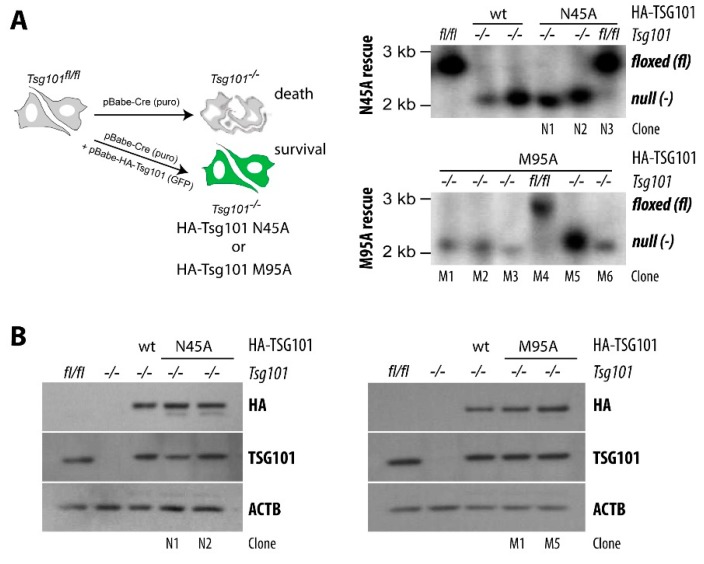Figure 3.
Exogenous wildtype TSG101 and mutants with impaired ubiquitin (N45A) or PTAP (M95A) binding restore growth and survival of mouse fibroblasts that lack both endogenous Tsg101 alleles. (A) Experimental design of genetic rescue experiments in mouse TSG101 conditional knockout cells (left panel) to generate clones that exclusively express HA-tagged, exogenous wildtype or N45A and M95A mutants of TSG101. The right panel shows Southern blot results to verify the complete deletion of both endogenous Tsg101 alleles in individual rescue clones. (B) Western blot analyses to determine the expression of exogenous, HA-tagged TSG101 (wt, wildtype; N45A and M95A mutants) in selected rescue clones in comparison to the parental cells expressing endogenous TSG101 (Tsg101fl/fl). Detailed methods for the genetic rescue experiment, Southern blot strategy, and immunoblot reagents and methodologies can be found in our earlier publications [15,38,57].

